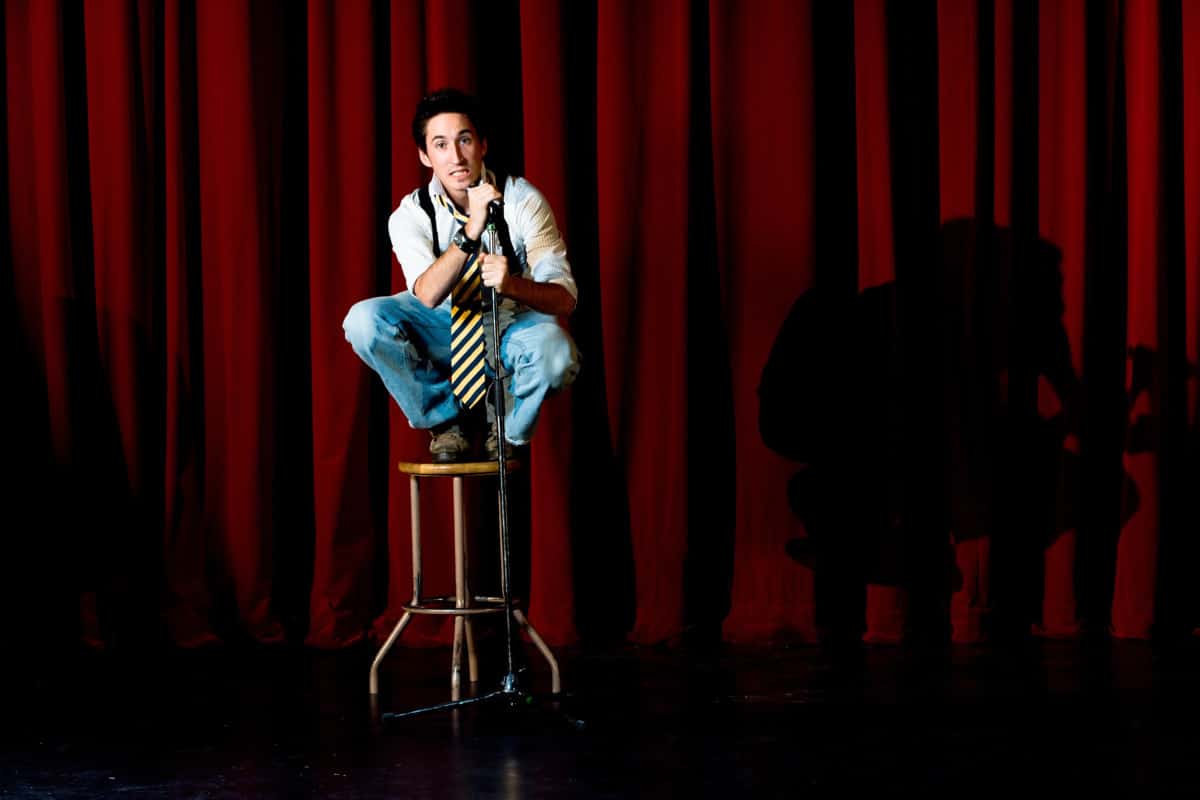Most comedians don’t think comedy can be taught. They also think you are either born funny or not. But as we know that’s not the case there are nature and nurture factors that come into play when it comes to being funny. There is also a bit of talent and a lot of hard work. Kevin Hart is famous for saying “Everybody wants to be famous, but nobody wants to do the work. I live by that. You grind hard so you can play hard. At the end of the day, you put all the work in, and eventually, it’ll pay off. It could be in a year, it could be in 30 years. Eventually, your hard work will pay off.”
It is literally called being blessed when people have the talent to make people laugh. While being funny is the only thing which gets you into comedy, do you think every single comedian was funny from the start? Or is there some sort of spell which can teach people to crack something up whenever they are asked about anything usual? No, but the skills required to put together a comedy routine and tell jokes can be taught, what can’t be taught come through experience.
The basics of comedy can be taught, including joke structure, stage presence, and even the art of surprise. No matter what kind of comedy you’re interested in, you can always learn it, because there is always a different structure to it. When you have examined well and invested heaps of energy rehearsing and running things past your friends and family, the time has come to begin taking it to the stage to work on timing, delivery, and tone to create your own comedy rhythm.
The Debate
Is it possible to teach comedy? This troubled yet amazing form of art where you are just standing in front of a microphone, facing a bunch of people – do you think you can teach anyone the art of making people laugh with their comedy? You can teach someone to play the trumpet or the right steps in a waltz, but as Duke Ellington described it that it won’t matter a bit if you don’t have the right swing.
Were you funny when you were that 7- year-old shy kid who took everything to heart? How seeing the hallway of your school roaring with laughter was never your thing? We all were a part of it. There are a lot people who would debate a little aggressively on the fact that people can be taught anything, but comedy. However, it can definitely be taught. In fact, Anthony Jessilnik who has several stand up specials said that taking comedy classes and said”…I knew I wanted to do it, but I didn’t know how to start, which I think is common for a lot of people.” The truth is learning what it takes to do stand up comedy is the biggest thing people need to know.
Sure, you can go on stage at any open mic and just talk hoping people will laugh at what you say but that’s like getting into an airplane with a parachute and no training on how to skydive then jumping out of the plane. Trust me when I say the pain of bombing on stage makes you wish you had jumped out of a plane instead. But why not take some time to learn the basics so you know how to do comedy before you try to do it?
What Can Be Taught
Every comedy has its structure so, it is fair to say that people can learn it. You can use various formulas and techniques to surprise every inch of those teary and turning red people sitting in the audience. It is stated that surprise is the number one thing that gets people laughing. You don’t believe it? Well, when you deliver different meanings of simple words that people don’t expect, why does it make people laugh? It is that element of surprise, just because they weren’t expecting you to respond in the way you did.
So, if surprise is the main component that triggers human laughter, wouldn’t it be savvy to become familiar with the various ways you can compose or convey a line or a story that will create surprise? Remember when Kevin Hart told everyone the Ostrich story he had? Weren’t the audience surprised, hence broke into tears, shortness of breath and laughter.
With that being said, you can learn the art of comedy on your own, but being taught by someone with knowledge and experience can be fun, exciting and easier. Learning comedy is like learning anything in this world. Just block away anyone who says that comedy cannot be taught – we do not want that sort of negativity in our lives. It is true, that it will take time to be good at it, but working with a good teacher, only makes the road a bit easier and your career acceleration faster.
What Can’t Be Taught
Getting on stage can be taught, writing jokes can be taught, and even building a routine can be taught. But what can’t be taught is timing, delivery, and tone. This is the rhythm of comedy. People can tell you about it and you can even see masters of the craft do it, but much like playing a song perfectly only you can do it. Sure you can coach comedians into pausing, listening for laughter, and even timing. The only thing you can’t teach them is the art of delivering it. Imagine how easy it for anyone to tell a joke, we do it all the time, right? But if the delivery of the joke isn’t funny, would you even call it a joke? Not really. The same goes for comedy – a person can take years to practice but if they don’t know the right way and time, they aren’t going to do much in this field.
A person can never learn comedy if they don’t know about the techniques. It is a different thing when you make your friends, colleagues, and teachers laugh, but do you know what is completely separate from this? Those agonizing minutes on stage. And to get comfortable spending these minutes on stage, comedians can take years of practice, working on their pitch of voice, timing, and their delivery. Nobody said that learning the right technique is impossible, it’s just not common.
There are many comedians who start with zero and get on TV or become a headliner in a short amount of time. We have all seen it happen. So, to the people who say, that it can’t be taught, how do you think they got better? Did people start liking the same jokes they did as an open mic comedian or did the comedian actually worked on themself and made it work by learning comedy? No, the comedian learned the process of comedy. Sure teachers can tell comedians and books can give you examples but only stage time can truly teach a comedian to be comfortable enough to get in the groove and learn the rhythm of stand up.
The entirety of this reveals to you that truly, comedy can be taught. Does this mean everybody will be able to learn how to be a stand up comedian? Yes. Will everyone be successful? No. But that’s not because it can’t be taught it is because it takes hard work, dedication, and repetition to become a great comedian.

